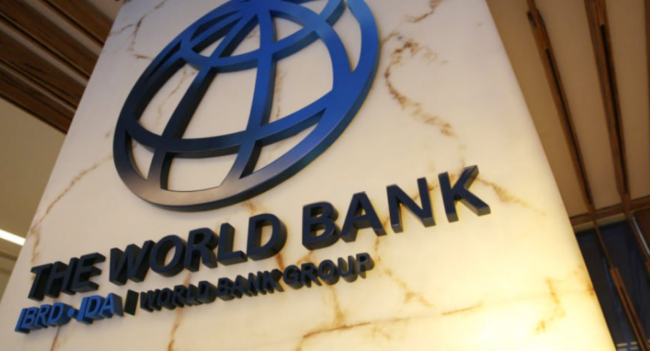The Central Bank of Nigeria (CBN) says foreign exchange (FX) utilisation for food importation dropped by half in January.
The CBN’s economic report on ‘Sectoral Utilisation of Foreign Exchange’ for January said a total of $160 million was spent from Nigeria’s FX on importing food in January.
This represents a 48 percent decline when compared to $310 million spent in December 2020.
The report said FX worth $2.75 billion was expended across sectors, representing a 40.3 percent decrease from the preceding month.
Advertisement
“Total foreign exchange utilisation by sectors decreased by 40.3 per cent from the preceding month to $2.75bn, reflecting a drop in end-user demand for foreign exchange, owing to year-end ease in economic activities,” the report said.
“Visible and invisible imports, constituting 46.9 per cent and 53.1 per cent of the total foreign exchange utilisation declined by 53.4 per cent and 20.7 per cent to $0.77bn and $0.87bn respectively.
“A disaggregation of foreign exchange utilisation for visible transactions showed that the amount utilised for industrial, manufactured products, and food products sub-sectors amounted to $0.30bn, $0.23bn, and $0.16bn respectively, relative to $0.72bn, $0.38bn, and $0.31bn in the preceding month.
Advertisement
“Also, oil, transport, agriculture, and mineral subsectors amounted to $0.05bn, $0.02bn, $0.008bn, and $0.006bn, respectively, in January 2021, compared with $0.15bn, $0.05bn, $0.02bn, and $0.02bn in December 2020.
“A disaggregation of the foreign exchange utilisation for invisible transactions showed that financial services stood at US$0.81 billion and accounted for 49.3 per cent of the total.
“The share of other sectors were as follows: business services, US$14.91 million (0.9 per cent); educational services, US$26.44 million (1.6 per cent); health related, US$0.14 million (0.01 per cent); transport services, US$12.97 million (0.8 per cent); and communication services, US$1.78 million (0.1 per cent). Other services not included elsewhere received US$6.73 million (0.4 per cent).”
In 2015, the apex bank restricted 41 items from accessing foreign exchange, adding that the measure was to encourage local production of the items and conserve Nigeria’s foreign reserves.
Advertisement
Some of the banned items are rice, cement, margarine, palm produce, beef, vegetables, poultry and eggs, wooden doors and iron rods — including maize which was banned in 2020.
About a week ago, CBN announced that it is planning to include sugar and wheat on the list of import items banned from accessing foreign exchange.
Add a comment






